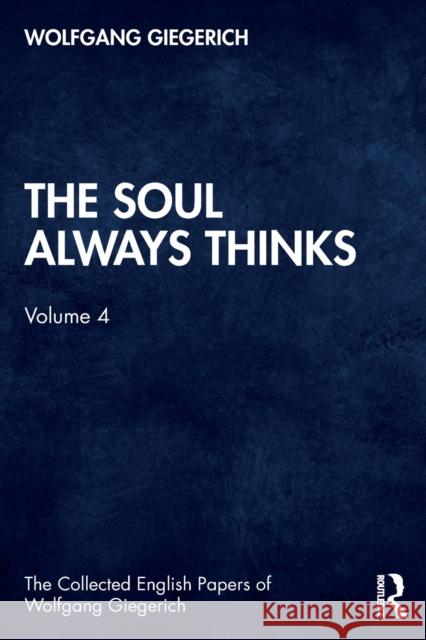The Soul Always Thinks: Volume 4 » książka
The Soul Always Thinks: Volume 4
ISBN-13: 9780367485269 / Angielski / Miękka / 2020 / 620 str.
The Soul Always Thinks: Volume 4
ISBN-13: 9780367485269 / Angielski / Miękka / 2020 / 620 str.
(netto: 166,51 VAT: 5%)
Najniższa cena z 30 dni: 173,75
ok. 22 dni roboczych
Dostawa w 2026 r.
Darmowa dostawa!
C. G. Jung regarded the soul to be a reality in its own right which reflects itself in all manner of images and events. symbols and traditions. In this fourth volume of his Collected English Papers, Giegerich recalls the soul to the inwardness of its own home territory by bringing out the thought-character of the self-creating, self-unfolding logical life that it is. In addition to clarifying what thought means for psychology and analyzing certain misconceptions surrounding the topic of "soul and thought" a challenging thesis concerning the limitation of an imaginal, "anima-only" approach in psychology (given the essential historicity of the soul) is carefully argued, while examining at the same time such topics as "the end of meaning and the birth of man," "anima mundi and time", "the metamorphosis of the gods," and the logical steps involved in the transition from childhood to adulthood and from a psychological oneness with nature to modern alienation from nature. The book also discusses the notion of the soul's logical life and shows in action the psychological procedure of "absolute-negative interiorization" of phenomena into their soul and truth in a number of in-depth examinations of particular phenomena (e.g. Heraclitus' dictum about the soul's depth, the "leap into the solid stone," the negativity of the "stone which is not a stone"). In thorough-going critical engagements with other authors in the field, it demonstrates specific instances where psychology fails to do its job due to faulty presuppositions, above all psychology's failure to face the modern world. It emphasizes the active role of the mind in soul-making as the making of psychic reality. It addresses the questions of the future of psychology and whether progress in psychology is possible.











